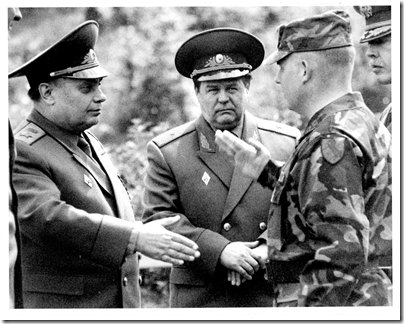Paying Tribute to Freddie
25 November 2019 • by Bob • Music, Travel
Today marks the 28th anniversary of Freddie Mercury's untimely death in 1991 at the age of 45. I have been a fan of Freddie and Queen since the early 1970s, and to this day I wonder how much more Freddie would have accomplished had his excessive lifestyle not taken its toll. That being said, shortly before my wife and I visited Montreux, Switzerland, this past August, I learned that the city had placed a statute of Freddie Mercury along the shore of Lake Geneva as a memorial to the years that he had lived there. As it turns out, the hotel that we had already reserved was within perhaps a half-kilometer from the sculpture.
My wife and I arrived in Montreux in the early evening, and before dinner we walked along the boardwalk next to Lake Geneva, with the hopes that we would be able to find the memorial before it grew too dark. We found Freddie's statue just as the sun began to set, and my wife took the following two photos: the first image was of the sun setting beside Freddie, and the second was of me behaving like the tourist I was by imitating Freddie's famous pose in the quickly fading twilight.
Obviously my jacket was nowhere near as elaborate as Freddie's original, and my 360 camera on a monopod had to substitute for Freddie's microphone stand. Nevertheless, before his death, Freddie had said, "You can do what you want with my music, but don't make me boring." With that in mind, I would like to think that Freddie would be greatly amused by the number of tourists who fondly remember him as anything but boring.
Transcribing Lost in Germany by King's X
18 November 2019 • by Bob • Guitar, Music
It's been a few months since I posted a guitar transcription, but that doesn't mean that I haven't been working on transcriptions - I just haven't been posting transcriptions. That being said, I decided that I was long overdue, so here's today's offering: "Lost in Germany" by King's X. (See https://youtu.be/hoyuCg-Exjs for the original song.)
Once again, my transcription is pretty faithful to the original, here are the main differences that I can think of:
- The primary artistic license that I took was to remove some of the extraneous repeats from the outro, and I added an ending chord since the original recording fades out. That being said, I thought that the
A (add 11/no 5) chord that I ended with matches the song quite well. - In measure 17, Ty Tabor changes up the guitar line for that single measure. However, I elected not to include that because I wanted to use the four repeats to simplify my transcription work. Yeah, that's kind of lazy on my part, but this is a free transcription so deal with it.
- I think I do a pretty good job of nailing Jerry Gaskill's drum parts throughout the song. During the extra repeats in the outro he changes his fill at the end of each four-measure passage, and since I shortened my transcription you lose those.
- I listened carefully to Doug Pinnick's bass parts, and I think my transcription of his parts are pretty close to what he's playing; I couldn't hear anything overly complex, though his groove/timing are really cool.
That's it for now. I have a few other transcriptions in the works that should be surprises, but I have no idea when I'll deliver on those, so don't hold your breath.
My List of 20 Most Influential Albums
18 November 2019 • by Bob • Music, Guitar
I was recently challenged by two good friends (on the same day, no less) to post a list of the 20 albums that had the greatest impact on me. To be honest, I usually do not go in for that sort of thing. However, seeing as how I've already posted blogs for My Top Ten Favorite Rock Songs, A Few of My Favorite Guitar Solos, and My Thoughts About Rush's Studio Albums, I thought this was the kind of challenge that warranted a response - with one caveat: I'm too impatient to spread my list across 20 days. With that in mind, you get the whole list in one heaping serving of musical goodness.
Before I go any further, I want to establish a few particulars about the way I write my lists that I have used for the other lists that I have posted. First and foremost is that I only allow myself to have a single entry for each band/artist, otherwise I could easily fill an entire list with only two or three of my favorite bands. Second, you might find it interesting that some of the bands/artists who show up in my list of favorite rock songs or favorite guitar solos are not on my list of influential albums; for example: the Who. While "Baba O'Riley" and "Won't Get Fooled Again" are two of my all-time favorite songs, I cannot point to any single album by the Who that I would consider as having had an influence on me. In addition, I would like to point out that several of the bands/artists listed here I haven't listened to in decades; these bands/artists were influential when I was starting out, but I abandoned them later as I progressed as a musician.
With all that being said, let's jump into the list - which is not necessarily in order. (Except #1 - which always belongs there.)
|
|
|
|
|
|
|
|
|
|
|
|
|
|
|
|
|
|
|
|
Conspicuously missing from this list are a few bands/artists whom I should honorably mention:
- King's X - I love most of their albums prior to Tape Head, (which was a bit of clunker in my opinion). Ty Tabor's guitar parts are amazing, and while I have taken the time to learn a few of their songs, I cannot honestly say that any of their albums had any serious impact on me.
- Queen - I loved Queen, Brian May's guitar work is amazing, and I certainly learned how to play several of their songs. But once again, I cannot point to any of their albums and say that it had any impact on my playing.
- Aerosmith - I learned several songs of theirs over the years, although I was never a full-fledged fan of theirs. Joe Perry was an amazing guitarist, and I picked up a few things from him, but I can't point to any single album as being influential in my life.
- Stavesacre - I believe that I have seen Stavesacre more times in concert than any other band. (Well, maybe a couple times less than Rush.) And even though I have learned how to play several of their songs on the guitar, I can't say that they helped me develop as a musician. (Stavesacre came along after I'd already been playing for decades.)
- The Who - As I mentioned in my introduction, I love the Who; I've seen them in concert, and I've learned a lot of their songs over the years. But still, I cannot say that any single album from them had a profound impact on me. (Although their album Who's Next almost makes the cut.)
- Gary Moore - As both a solo artist and as a member of bands like Thin Lizzy, I learned several pieces from Gary Moore, and a few of his guitar pyrotechnics used to show up in my live guitar solos. (Just the flashy bits.)
- And last but not least - Styx, Journey, Zebra, and 38 Special also had small degrees of impact on me as a guitarist.
That wraps it up for this post.
UPDATES
As time goes on, I'll add any glaring omissions from my list of honorable mentions as I think of them.
- The Police - I wasn't crazy about Sting's voice when I first heard The Police; I couldn't figure out why a former British punk rocker had such a weird accent. But as a guitar player, I was amazed at Andy Summers' tone and chord structures; I still get arthritis just thinking about playing some of Andy Summers' rhythm guitar parts from songs like "Message in a Bottle," "Every Breath You Take," etc.
- Stephen Bennett - I saw Stephen Bennett in concert at one of the Hammered Dulcimer festivals that I attended, and I was amazed at his fingertyle skill; he played Scott Joplin rags on the guitar, he played harp guitar, he played an amazing/ancient steel guitar, etc. As I attended other festivals, I was able to take workshops with Stephen, and I picked up some great techniques. Some years later I arrived early to one of Stephen's concerts; he recognized me, and stopped by to say "Hi." We began talking about guitar, of course, and as we were discussing some of the Scott Joplin pieces that I was working on, Stephen took me backstage where the two of us had an impromptu 1:1 guitar lesson. (Stephen was the teacher, of course.) Stephen had a lasting impact on my playing, but on top of that - he's a class act.
- Mark Hanson - I made an amazing discovery one day: a lot of fingerstyle guitar transcriptions that I had been learning from over the years, as well as several of the books about playing fingerstyle guitar that I had been working through, were all written by the same guy - Mark Hanson. Then I made another amazing discovery: Mark lived in Portland while I lived in Seattle, and Mark would frequently travel up to Seattle to teach workshops at the Dusty Strings store in Fremont. I was able to attend several workshops with Mark, and I will freely admit - his 1:1 instruction has helped my fingerstyle playing improve dramatically. (And I play several of his arrangements to this day.)
- Steven Saulls - I cannot possibly overstate the following admission: Steven Saulls impacted my guitar playing more than any other guitarist in my lifetime. Period. Steven was my classical guitar tutor in the early 1980s, but most-importantly - Steven showed me everything that I was doing wrong on the guitar. Until I met Steven I was predominantly self-taught, and as a result - I had formed a lot of bad habits. Steven gave me a whole list of extremely tedious exercises to work with, and challenged me to completely relearn how to play my instrument. I felt like a high school student going back to kindergarten, but I followed Steven's suggestions to the letter, and ultimately I became a much better musician because of it.
The Beauty of Arizona Deserts
14 November 2019 • by Bob • Arizona
Someone I know was making light of the fact that Californians paint their lawns to compensate for their brown seasons of year, and she wondered if those of us who live in the perpetual state of Arizona's desert browns should emulate our western neighbors' behavior and paint our trees the fall colors of orange and yellow and red.
I countered her suggestion with my observation that every night God paints the entire Arizona landscape with beautiful hues of oranges and yellows and reds, as well as pinks and purples and blues... but during the day we have green-skinned Palo Verde trees with yellow blossoms, and towering Saguaros crowned by delicate white flowers, and Prickly Pears and Chollas decorated with red, yellow, purple, orange, and green cactus blooms. Every day we are greeted by every color of the rainbow waiting just outside our doors, so there's no need to envy those who breathe the foul stench of brown skies and cower in

Remembering the Fall of the Wall
10 November 2019 • by Bob • Politics, Military, History
Today is November 9, 2019, which is exactly 30 years since the opening of the East German border; that event has since become known as "The Fall of the Wall." I was stationed along the East German border when it was opened, and I still have vivid memories of what the world was like at that time.
Tensions in East Germany had been building for some time, and thousands of East Germans had already fled through neighboring Warsaw Pact nations like Hungary and Czechoslovakia. When the border was opened unexpectedly on November 9, 1989, hundreds of thousands of East Germans poured into West Germany, where they were met with open arms by crowds of joyous West German citizens and US military personnel.
Within a few short years, the two Germanys were reunited, and the Soviet Union collapsed - which was the greatest manifestation of Communism's many, many failures. However, as a reminder of what the border was like before it opened, you might want to watch the following video.
Just two short months ago, a small group of my fellow 511th MI Company veterans and I met for a reunion at the former
Posing by the former border towers.
Not to beat a dead horse on the subject, but this is a chunk of the East German border fence that I have had in my office for the past three decades. I personally cut that section off the fence after the border was opened, and it's a nice little reminder that the plans of evil men everywhere will eventually fail.
The text is a little blurry, but it quotes Psalm 146:7 "The Lord sets the prisoners free,"
with the dates of 13 August, 1961 to 9 November, 1989.
Sometimes It's Better Not to Chase Your Dreams
17 October 2019 • by Bob • Ponderings, Music, Family
A friend of mine recently posted the following quotation from G. K. Chesterton, which caused me to step back for a moment and reflect on some recent discussions about how my life turned out...
Just a brief bit of honesty - I played guitar for several bands in my younger days, and I was particularly obsessed with "making it" as far as that industry was concerned. I focused on performance, songwriting, technical skill, etc., and I had a STRICT no drugs/alcohol policy; those things ruined musicianship and relationships, and unless you could be totally sold out for music, then you didn't belong. In short, anyone who wasn't as 110% passionate about being a success got booted from my band. I abandoned that form of obsessive pursuit when I became a Christian, and I briefly played in couple Christian bands before I eventually gave it all up and joined the Army.
A lot of time has passed since then, and my wife was recently commenting that it's too bad that I didn't have my "chance" to become a successful musician when I was younger, for I am admittedly far too old to be packing up a guitar and headed out on career-starting tour. I countered her condolences with the following self-observation...
No, it's a great thing that I didn't chase my "dream." The entertainment industry ruins people, as Hunter S. Thompson once observed, "The music business is a cruel and shallow money trench, a long plastic hallway where thieves and pimps run free, and good men die like dogs. There's also a negative side."
I have no misconceptions that I would have failed miserably as a human being the closer I got to "success" in worldly terms. Sure, I may have continued to avoid drugs and alcohol, but that doesn't mean I wouldn't have succumbed to other vices - perhaps something seemingly acceptable as materialism. (e.g. I still own 20+ guitars.)
But the pursuit of success - at least in the way that my brain was wired to pursue it - was a form of idolatry, and I have no misconceptions about that. Even in the Christian music business, most people get destroyed by the industry. So I have no illusions about missing my "chance" when I was younger. I became a husband, and a dad, and more importantly a decent human being; those are far better legacies in my estimation. Don't get me wrong, there are a handful of people who can balance "success" and basic human decency, but tens of thousands of people cannot do so, and I'm one of them.
Noble Causes Do Not Justify Exploitation
27 September 2019 • by Bob • Politics
In the wake of Greta Thunberg's recent passionate speech about climate change before the United Nations, someone I know shared the following quote from Lawrence Reed:
"The people who have terrified this child with apocalyptic visions of planetary annihilation should be ashamed. You can see the fear, the hate, and the contemptuousness in her voice and her expressions. She reminds me of the teenage Maoists during China's Cultural Revolution; they too were absolutely certain they were right and were happy to torture you if you thought they weren't. Tragic. Any movement that uses children like this, that expects the rest of us to regard her as some sort of expert, deserves only our everlasting scorn." (Lawrence Reed, 09/23/2019)
Reed's comments understandably launched a flurry of differing opinions from both sides of the climate debate; most of their arguments were equally as impassioned as Thunberg's. However, what bothered me the most was that most people completely ignored Reed's main point; the issue is not whether you agree with Thunberg, or whether you believe that climate change is real. The slippery precipice upon which many people who promoted and applauded Thunberg's speech now find themselves is that they are exploiting a child to sell their agenda - and that is a terrible thing to do.
I weighed in on one of the ensuing debates, and I would like to paraphrase some of my thoughts for posterity.
We should all take climate change very seriously. And even if that wasn't an issue, the amount of toxic waste that humanity collectively dumps all over this planet should be taken even more seriously. Nevertheless, regardless of Greta Thunberg's motivations, the statement from Lawrence Reed should also be taken with the utmost of seriousness; any cause that exploits children to garner support for its message is immoral. It does not matter whether Thunberg is well-read and passionate about the subjects that she is discussing; at the end of the day, she is not a scientific expert on these matters, (though I am certain that she will be in the future). But for now, those who stand behind Thunberg are using her passion to promote their agenda, and when any segment of society uses children in that fashion, their message is degraded. Regardless of the morality of the underlying cause, exploiting children to endorse your message is immoral.
In Thunberg's speech, she accused politicians of ignoring long-term climate issues in order to profit from short-term financial gains, and I would agree with that assertion. And lest there be any mistake, greedy politicians aren't just an American problem; they are a global problem. That being said, I think anyone who thinks that climate change isn't real is not paying attention, and anyone who thinks that humanity isn't impacting the environment is burying their head in the sand.
However, science has shown us that our planet is pretty resilient; the climate has swung much further in both the warming and cooling directions over the course of its history; regardless of what happens to the climate now, the planet's ecosystems will recover from our climate stupidity in future centuries. My greater concern is that we're polluting the planet so badly that even if the climate recovers, the planet will be too toxic for anything to live on it. In that respect, climate change is only part of the problem - not the entire problem. (See Arnold Schwarzenegger's epic rant about climate change for more.)
While climate change is very real, I often see the "97% of climate scientists agree" comment thrown about during debates. Unfortunately, that is a made up statistic that everyone keeps quoting, and I really wish people would stop using it. Like many urban legends, the 97% figure is a self-perpetuating fabrication that refuses to die. You can read articles like 97% Of Climate Scientists Agree Is 100% Wrong for just one example on how some people erroneously invented and promoted that mythical number, and there are many more papers that have similarly refuted it. Here's the thing - if we want people to believe that climate change is real, we need to stop repeating garbage statistics, because all that does is reinforce the opposition's mistaken impression that everything else we say about climate change is equally bogus.
Circling back to Lawrence Reed's original point, I do not believe that Thunberg is being "forced" to do anything, but she's being "used." Many of the heinously awful movements throughout history have used children as their spokespersons, because putting a face to your message that can foster sympathy for your cause is a good marketing tactic. But it's still wrong. Thunberg is too young and naive to realize that she is little more than a political human shield in this debate; a sacrificial pawn that allows kings and queens to operate in relative obscurity while she takes the fall if something goes wrong. Climate change is worthy of championing, but not in this fashion; we need not stoop to methods employed by propagandists to promote what is right.
With that in mind, while I do not wish to appear as though I am reinforcing Godwin's Law, I believe the following image accurately portrays how I feel about the opportunistic cowards who are hiding behind Greta Thunberg's passion:
When Your Heroes Grow Old
13 September 2019 • by Bob • Music, Guitar, Humor
I grew up listening to Yes - they were some of my original music heroes, long before I got into bands like Rush. That being said, I am profoundly aware of that fact that as I grow older, my heroes are growing older, too. But some of us aren't aging that gracefully.
Just the other day I saw the following photo of Steve Howe from a recent Yes tour:
I hate to say it, but the first thing I thought of was the Crypt-Keeper from the old Tales from the Crypt television series:
Now that you've seen that, you cannot unsee it. You're welcome.
![]()
![]()
More 511th Stories: Sometimes You Should Shut Up And Be In The Photo
28 August 2019 • by Bob • Military, History
In my last year at Fulda, I was chosen to be the translator for COL John Abrams, (commander of the 11th Armored Cavalry Regiment [ACR]), during a ceremony when GEN Boris Vasilievich Snetkov, (commander of the Group of Soviet Forces in Germany [GSFG]), and GEN Alexandrov (commander of the Soviet Military Liaison Mission in Germany [SMLM]) came across the border.
When the 11th ACR's official photographer for the ceremony heard that I was COL Abrams' translator, he asked if I had a top secret clearance; and if so, was he forbidden from taking my photo. Like many people, I hate having my photo taken, so I told him that it was against regulations to take a photograph of me.
Later on, however, COL Abrams followed up with me and said that I had done a great job as his translator, so he had instructed the photographer to make 8x10 copies of any of the photos from the ceremony for me to keep. (I think you can guess where this is going, even though I didn't at the time.)
The photographer called me when the proofs were ready, and when I showed up at his office, I discovered that he had - in fact - taken photos from dozens of angles, and yet he had managed to faithfully keep me out of every shot. The closest he came to having me in an image was during the
I learned an important lesson from this experience: sometimes you should just shut up and let someone take your
Always Remember to Shave in the Army
20 June 2019 • by Bob • Military, Humor
I attended the USAREUR Air Assault School in 1988, and one of the cadets failed to shave one morning.
He was ordered to dry shave while standing on a stump that was placed in front of the entire class, and he was required to loudly lecture everyone on the merits of daily shaving, while the rest of the class stood at parade rest.
At one point, the following conversation took place:
"Roster Number 30!!! Are you bleeding???"
"Yes, Air Assault First Sergeant!!! Blood helps lubricate the blade!!!"
After which the guy's squad leader was order to kneel next to the stump and catch any blood in his cupped hands, lest any blood hit the ground and desecrate the surrounding area.

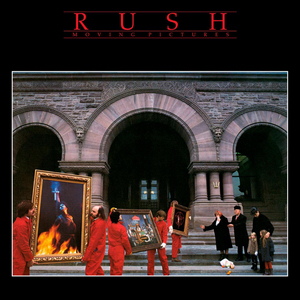 #1 -
#1 - _cover_art.jpg) #2 -
#2 -  #3 -
#3 -  #4 -
#4 -  #5 -
#5 -  #6 -
#6 -  #7 -
#7 - 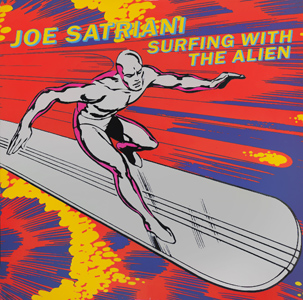 #8 -
#8 -  #9 -
#9 -  #10 -
#10 - 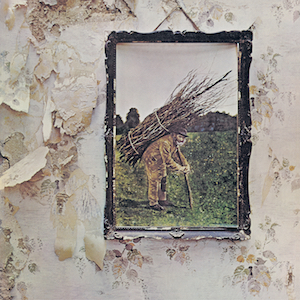 #11 -
#11 -  #12 -
#12 - 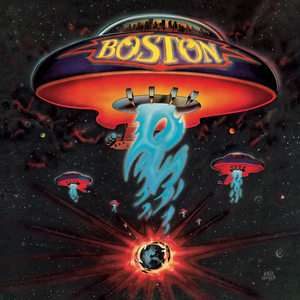 #13 -
#13 -  #14 -
#14 -  #15 -
#15 -  #16 -
#16 - .jpg) #17 -
#17 - 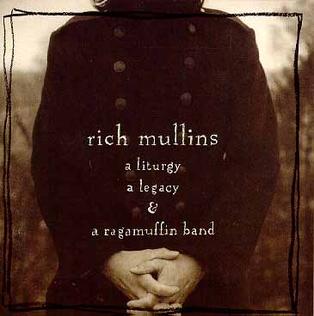 #18 -
#18 -  #19 -
#19 - 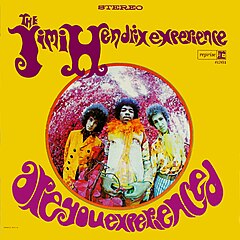 #20 -
#20 - 






